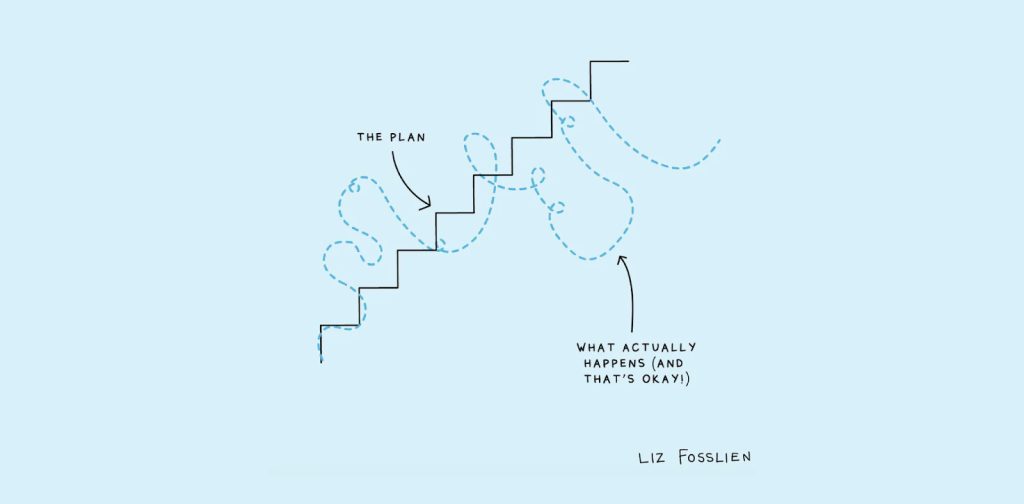Why personal change is hard
The challenge of shifting identity
Successful change takes both insight and courage. Not just an awareness of what’s holding us back, but also the courage to question old beliefs and take a step into the unknown.
This month’s Acumen explores ways we can challenge our working identity: how to break out of our sense of ‘who we are’ to learn more, overcome blockers, and go further in our relationships and career.
The key takeaway?
Change doesn’t happen in a neat sequence of reflect, plan, act — a new working identity grows out of action. Here’s some inspiration and an exercise to get started.
CADENCE CURATION
Watch: Know Your Role: Successful Career Transitions | TEDx | 13 mins
Business professor Darrin Theriault uses the term role identity to describe our sense of ‘who we are’ at work and in our personal lives. While our role identity can serve us well, it can also hold us back.
Through three short and memorable stories, Darrin highlights
- How an old ‘successful’ role identity won’t necessarily transfer well to a new role
- How our beliefs and internal story prevent us from realising our true potential
- The power of reconsidering our role identity to create space for growth
This is a great short watch if you’re planning or in the middle of change and need some encouragement.
CADENCE TOOLKIT
Cadence Tool: Strategies For Rethinking Your Career Path
When you’re considering a major career change, the conventional advice is to start with a plan.
Yet research on real-life transitions shows that may be the last thing you need. Career changes are long and messy; they don’t fit neatly into a strategy of reflect, plan, act. You can’t shift to a new career identity by simply thinking about where you are now and where to go next.
This month’s Cadence tool presents nine alternative and practical strategies for navigating a career transition, as described by LBS professor Herminia Ibarra.
TRY IT
What’s one big assumption you hold about yourself as a leader (e.g., ‘If I’m not ‘doing’ the work, I’m not adding value’, ‘If I give my team negative feedback they might leave’)? Consider
- Is this assumption true? Do you know 100% that it is true?
- What is an alternative assumption that is also true? (e.g., ‘My team would value the growth in constructive feedback’).
- What would change for you or your team if this alternative assumption was true?
Take one small step this week to either test your conviction (is your assumption really true?) or explore an alternative one (what happens if you act differently?).
ANY OTHER BUSINESS
“Liminal space can be freeing – the rules of normal life don’t apply. It can be anxiety provoking too. If you avoid trying to fill the void with lots of things to do, interesting things can happen.“
Hermina Ibarra

